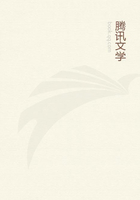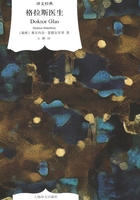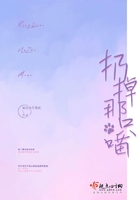I had not announced my arrival to Stroeve, and when I rang the bell of his studio, on opening the door himself, for a moment he did not know me. Then he gave a cry of delighted surprise and drew me in. It was charming to be welcomed with so much eagerness. His wife was seated near the stove at her sewing, and she rose as I came in. He introduced me.
‘Don't you remember?’he said to her.‘I've talked to you about him often.’And then to me:‘But why didn't you let me know you were coming?How long have you been here?How long are you going to stay?Why didn't you come an hour earlier, and we would have dined together?’
He bombarded me with questions. He sat me down in a chair, patting me as though I were a cushion, pressed cigars upon me, cakes, wine. He could not leave me alone. He was heart-broken because he had no whisky, wanted to make coffee for me, racked his brain for something he could possibly do for me, and beamed and laughed, and in the exuberance of his delight sweated at every pore.
‘You haven't changed’, I said, smiling, as I looked at him.
He had the same absurd appearance that I remembered. He was a fat little man, with short legs, young still-he could not have been more than thirty-but prematurely bald. His face was perfectly round, and he had a very high colour, a white skin, red cheeks, and red lips. His eyes were blue and round too, he wore large gold-rimmed spectacles, and his eyebrows were so fair that you could not see them. He reminded you of those jolly, fat merchants that Rubens painted.
When I told him that I meant to live in Paris for a while, and had taken an apartment, he reproached me bitterly for not having let him know. He would have found me an apartment himself, and lent me furniture-did I really mean that I had gone to the expense of buying it?-and he would have helped me to move in. He really looked upon it as unfriendly that I had not given him the opportunity of making himself useful to me. Meanwhile, Mrs Stroeve sat quietly mending her stockings, without talking, and she listened to all he said with a quiet smile on her lips.
‘So, you see, I'm married’, he said suddenly;‘what do you think of my wife?’
He beamed at her, and settled his spectacles on the bridge of his nose. The sweat made them constantly slip down.
‘What on earth do you expect me to say to that?’I laughed.
‘Really, Dirk’, put in Mrs Stroeve, smiling.
‘But isn't she wonderful?I tell you, my boy, lose no time, get married as soon as ever you can. I'm the happiest man alive. Look at her sitting there. Doesn't she make a picture?Chardin, eh?I've seen all the most beautiful women in the world;I've never seen anyone more beautiful than Madame Dirk Stroeve.’
‘If you don't be quiet, Dirk, I shall go away.’
‘Mon petit chou’, he said.
She flushed a little, embarrassed by the passion in his tone. His letters had told me that he was very much in love with his wife, and I saw that he could hardly take his eyes offher. I could not tell if she loved him. Poor pantaloon, he was not an object to excite love, but the smile in her eyes was affectionate and it was possible that her reserve concealed a very deep feeling. She was not the ravishing creature that his love-sick fancy saw, but she had a grave comeliness. She was rather tall, and her grey dress, simple and quite well-cut, did not hide the fact that her figure was beautiful. It was a figure that might have appealed more to the sculptor than to the costumier. Her hair, brown and abundant, was plainly done, her face was very pale, and her features were good without being distinguished. She had quiet grey eyes. She just missed being beautiful, and in missing it was not even pretty. But when Stroeve spoke of Chardin it was not without reason, and she reminded me curiously of that pleasant housewife in her mob-cap and apron whom the great painter has immortalized. I could imagine her sedately busy among her pots and pans, making a ritual of her household duties, so that they acquired a moral significance;I did not suppose that she was clever or could ever be amusing, but there was something in her grave intentness which excited my interest.
Her reserve was not without mystery. I wondered why she had married Dirk Stroeve. Though she was English, I could not exactly place her, and it was not obvious from what rank in society she sprang, what had been her upbringing, or how she had lived before her marriage. She was very silent, but when she spoke it was with a pleasant voice, and her manners were natural.
I asked Stroeve if he was working.
‘Working?I'm painting better than I've ever painted before.’
We sat in the studio, and he waved his hand to an unfinished picture on an easel. I gave a little start. He was painting a group of Italian peasants, in the costume of the Campagna, lounging on the steps of a Roman church.
‘Is that what you're doing now?’I asked.
‘Yes. I can get my models here just as well as in Rome.’
‘Don't you think it's very beautiful?’said Mrs Stroeve.
‘This foolish wife of mine thinks I'm a great artist’, said he.
His apologetic laugh did not disguise the pleasure that he felt. His eyes lingered on his picture. It was strange that his critical sense, so accurate and unconventional when he dealt with the work of others, should be satisfied in himself with what was hackneyed and vulgar beyond belief.
‘Show him some more of your pictures’, she said.
‘Shall I?’
Though he had suffered so much from the ridicule of his friends, Dirk Stroeve, eager for praise and na?vely self-satisfied, could never resist displaying his work. He brought out a picture of two curly-headed Italian urchins playing marbles.
‘Aren't they sweet?’said Mrs Stroeve.
And then he showed me more. I discovered that in Paris he had been painting just the same stale, obviously picturesque things that he had painted for years in Rome. It was all false, insincere, shoddy;and yet no one was more honest, sincere, and frank than Dirk Stroeve. Who could resolve the contradiction?
I do not know what put it into my head to ask:
‘I say, have you by any chance run across a painter called Charles Strickland?’
‘You don't mean to say you know him?’cried Stroeve.
‘Beast’, said his wife.
Stroeve laughed.
‘Ma pauvre ch'rie.’He went over to her and kissed both her hands.‘She doesn't like him. How strange that you should know Strickland!’
‘I don't like bad manners’, said Mrs Stroeve.
Dirk, laughing still, turned to me to explain.
‘You see, I asked him to come here one day and look at my pictures. Well, he came, and I showed him everything I had.’Stroeve hesitated a moment with embarrassment. I do not know why he had begun the story against himself;he felt an awkwardness at finishing it.‘He looked at-at my pictures, and he didn't say anything. I thought he was reserving his judgement till the end. And at last I said:“There, that's the lot?”He said:“I came to ask you to lend me twenty francs.”’
‘And Dirk actually gave it him’, said his wife indignantly.
‘I was so taken aback. I didn't like to refuse. He put the money in his pocket, just nodded, said“Thanks”, and walked out.’
Dirk Stroeve, telling the story, had such a look of blank astonishment on his round, foolish face that it was almost impossible not to laugh.
‘I shouldn't have minded ifhe'd said my pictures were bad, but he said nothing-nothing.’
‘And you will tell the story, Dirk’, said his wife.
It was lamentable that one was more amused by the ridiculous figure cut by the Dutchman than outraged by Strickland's brutal treatment of him.
‘I hope I shall never see him again’, said Mrs Stroeve.
Stroeve smiled and shrugged his shoulders. He had already recovered his good humour.
‘The fact remains that he's a great artist, a very great artist.’‘Strickland?’I exclaimed.‘I can't be the same man.’
‘A big fellow with a red beard. Charles Strickland. An Englishman.’
‘He had no beard when I knew him, but if he has grown one it might well be red. The man I'm thinking of only began painting five ’years ago.
‘That's it. He's a great artist.’
‘Impossible.’
‘Have I ever been mistaken?’Dirk asked me.‘I tell you he has genius. I'm convinced of it. In a hundred years, if you and I are remembered at all, it will be because we knew Charles Strickland.’I was astonished, and at the same time I was very much excited. I remembered suddenly my last talk with him.
‘Where can one see his work?’I asked, ‘Is he having any success?Where is he living?’
‘No;he has no success. I don't think he's ever sold a picture. When you speak to men about him they only laugh. But I know he's a great artist. After all, they laughed at Manet. Corot never sold a picture. I don't know where he lives, but I can take you to see him. He goes to a caf'in the Avenue de Clichy at seven o'clock every evening. If you like we'll go there tomorrow.’
‘I'm not sure if he'll wish to see me. I think I may remind him of a time he prefers to forget. But I'll come all the same. Is there any chance of seeing any of his pictures?’
‘Not from him. He won't show you a thing. There's a little dealer I know who has two or three. But you mustn't go without me;you wouldn't understand. I must show them to you myself.’
‘Dirk, you make me impatient’, said Mrs Stroeve.‘How can you talk like that about his pictures when he treated you as he did?’She turned to me.‘Do you know, when some Dutch people came here to buy Dirk's pictures he tried to persuade them to buy Strickland's. He insisted on bringing them here to show.’
‘What did you think of them?’I asked her, smiling.
‘They were awful.’
‘Ah, sweetheart, you don't understand.’
‘Well, your Dutch people were furious with you. They thought you were having a joke with them.’
Dirk Stroeve took off his spectacles and wiped them. His flushed face was shining with excitement.
‘Why should you think that beauty, which is the most precious thing in the world, lies like a stone on the beach for the careless passer-by to pick up idly?Beauty is something wonderful and strange that the artist fashions out of the chaos of the world in the torment of his soul. And when he has made it, it is not given to all to know it. To recognize it you must repeat the adventure of the artist. It is a melody that he sings to you, and to hear it again in your own heart you want knowledge and sensitiveness and imagination.’
‘Why did I always think your pictures beautiful, Dirk?I admired them the very first time I saw them.’
Stroeve's lips trembled a little.
‘Go to bed, my precious. I will walk a few steps with our friend, and then I will come back.’














